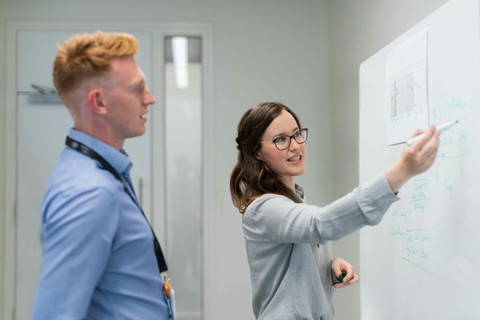The life sciences field, which can include large pharmaceutical companies (i.e. Johnson & Johnson), biotechnology startups (i.e. Wave Life Sciences), and medical devices (i.e. Abbott), has opportunities for all degree concentrations. While it can be a great industry fit for those who have concentrated in the sciences and have research/lab experience, the field also has numerous opportunities in business, finance, and strategy. Whether you are looking to be in the lab or beyond the bench, the life sciences field is expected to grow. For instance, MassBioEd’s recent Life Sciences Employer Outlook report estimates the life sciences will increase in Massachusetts by 32% in 10 years.
Sidebar
Upcoming Events
Advisors
Assistant Director, Technology, Data Analytics, Life & Physical Sciences & Entrepreneurship Meet Meaghan
Job & Internship Opportunities
-
Science Teaching Opportunities for Grad StudentsCrimson Summer Academy
-
 Research Technician I/II- Yeh LabCold Spring Harbor Laboratory
Research Technician I/II- Yeh LabCold Spring Harbor Laboratory -
 Research Technician I/II -Tonks LabCold Spring Harbor Laboratory
Research Technician I/II -Tonks LabCold Spring Harbor Laboratory -
 Research Technician I - Joshua-Tor LabCold Spring Harbor Laboratory
Research Technician I - Joshua-Tor LabCold Spring Harbor Laboratory -
 College Lab InternCold Spring Harbor Laboratory
College Lab InternCold Spring Harbor Laboratory








